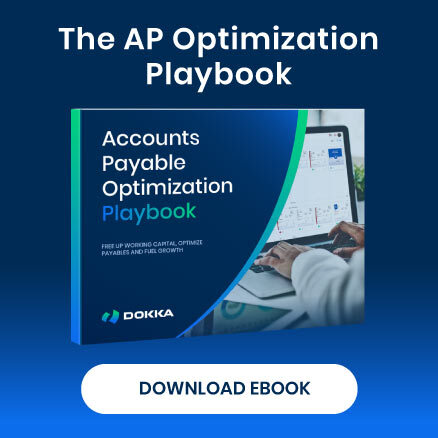Are you a CFO or financial controller struggling to stay on top of accounts payable processes?
Outsourcing AP can be a controversial topic. There are pros and cons to both sides of the argument.
On one hand, outsourcing AP may save time and money since some third-party AP providers specialize in taking care of the entire process quickly and efficiently so your internal AP staff doesn’t have to take on the burden of redundant bookkeeping tasks.
But on the other side, there may be hesitation to trust third-party providers with access to confidential financial information or worry about handing over control to an outside source instead of handling it internally.
In this blog post, we’ll explore the pros and cons of outsourcing accounts payable and reveal how it can help to reduce costs and improve efficiency within your organization.
What is Accounts Payable?
Accounts Payable (AP) is a financial term that describes short-term debt and obligations to a company’s vendors or suppliers for the goods and services bought on credit. The sum of all accounts payable is represented on a balance sheet as a current liability.
Examples of AP include expenses like the cost of raw materials, utility bills for power and energy or fuel, transportation, logistics costs, leasing, licensing, and any type of service or subcontracted work.
The accounts payable (AP) term is also used to describe the accounts payable department — a financial sublet that manages AP processes.
What is Accounts Payable Outsourcing?
The size of the AP department varies a lot in different companies, depending on the size of their business and accounts payable workload. Some AP departments do the work manually, which is very time-consuming and overburdens the AP staff.
Accounts payable outsourcing is when a company uses a third-party provider to capture and process invoices and payments. This reduces the company’s in-house AP workload and frees time for the AP staff to focus on other tasks. Time-saving is not the only perk of AP outsourcing, there are other benefits, but some downsides too.
If you’re thinking about engaging a third party to manage your AP work, here are some pros and cons of outsourcing accounts payable:
The 6 Pros of Outsourcing Accounts Payable
- Improves efficiency of the AP staff
- Reduces the chances of double payments
- Reduces errors and fraud
- Reduces hiring needs
- Reduces costs
- Gives access to the AP technology

1) Improves efficiency of the AP staff
AP outsourcing can be a significant boost to businesses looking to improve efficiency. Utilizing specialized AP services provided by third-party vendors can significantly reduce manual workload and streamline invoice processing.
By taking on the time-consuming administrative tasks typically associated with accounts payable, like vendor invoicing, payment reconciliation, and filing of documents, these providers can free up more time for AP staff to focus on core functions and other activities that will help grow their business.

2) Reduces the chances of double payments
Double payments can cause disruptions in cash flow management and increased spending. Most third-party AP providers use advanced analytics tools that can help prevent fraud and detect discrepancies between original invoice numbers and actual payment amounts.
With AP outsourcing, companies have access to an external team of experienced professionals who specialize in accounts payable and can check for errors and duplications to ensure nothing is paid out twice, which significantly lowers the financial risks associated with accidental over payments.
3) Reduces errors and fraud
AP outsourcing reduces errors because most third-party AP providers use automation tools to process data entry and payments. Automating mundane tasks reduces the possibility of human error that can occur when manually updating information.
Outsourced AP experts will also have an understanding of compliance regulations that must be followed during invoice processing, making sure all documents adhere to current standards, policies, and regulatory rules.

4) Reduces hiring needs
One of the biggest reasons to outsource AP is that it allows companies to scale up their operations without hiring additional staff. Outsourcing the AP process and delegating tasks saves time and money that would otherwise have been spent on hiring new employees.
Additionally, companies won’t need to spend time on educating and training new in-house staff, as they will already have well-trained experts in the AP area.
5) Reduces costs
Working with an external third-party provider, companies can avoid the costs associated with hiring and managing in-house staff, and instead enjoy the convenience of having a specialist deliver services tailored to their specific needs.
This cost-effectiveness is especially evident when contrasted against what companies must pay for new infrastructure when dealing with large-scale internal operations. Most third-party providers charge a fixed per-invoice rate instead of an hourly rate per employee.
6) Gives access to the AP technology
Finally, AP outsourcing provides companies with access to advanced technology solutions that would normally be too expensive for them to develop or maintain on their own. These solutions allow companies to keep up with changing market demands by giving them access to data analytics tools that help them make better decisions about their finances and operations overall.
AP automation solutions streamline and automate data capture and invoice processing. The use of automated processes allows the AP staff to quickly compare invoices with purchase orders and delivery receipts in a 3-way matching process, ensuring that all invoices are accurate and complete and that no payment is made without approval from the appropriate personnel in the organization.
Additionally, by taking advantage of advanced analytics technologies such as machine learning algorithms and artificial intelligence applications, third-party providers are better equipped to identify any potentially fraudulent activities within accounts payable. As a result, they can ensure compliance with all applicable laws while streamlining invoice processing procedures.
The 5 Cons of Outsourcing Accounts Payable
- Less control
- Lack of error transparency
- Dependency
- Data privacy and security concerns
- Limited communication

1) Less control
Outsourcing the AP processes can come with an inherent lack of control. When you turn the reins of your AP over to a third-party provider, it can be hard to know exactly what level of oversight and supervision you have.
With an in-house AP department, employees are more accessible to one another, meaning problems or inquiries can be brought to the right person’s attention immediately.
2) Lack of error transparency
Third-party providers may not be as transparent when things go wrong.
The lack of transparency associated with outsourced AP can put companies at risk as errors may not come to light until sizable fiscal impacts happen.
Many companies are not well-equipped or don’t know how to keep track of any errors committed by external providers. The best way to mitigate the risk associated with a lack of error transparency is to have safeguards in place designed to hold third-party providers accountable for any mistakes they make.
3) Dependency
When you outsource your AP process, you become reliant on the third party to ensure all invoices are processed exactly as specified. This means relinquishing control of a critical part of your financial operations and trusting them to adhere to protocols and deadlines. Not only might this lead to complications when filing taxes, but it can also hamper budgeting efforts as you have less visibility into day-to-day activities.
While outsourcing can save time and money in certain scenarios, it is important to consider the risks associated with such a dependency before deciding whether or not it’s the best solution.
4) Data privacy and security concerns
Data privacy and security are two of the major issues that come up with AP outsourcing. After all, when you decide to have someone else handle your AP functions you’re entrusting them with critical information about your business accounts and vendors.
Understandably, a huge concern would be how much access they have and whether or not they will take the necessary steps to properly secure your data. To ease these worries it’s important to thoroughly vet any potential partners before signing a contract and make sure that there are explicit terms included stating how they will handle the data entrusted to them.
5) Limited communication
There should be clear communication between the company and the third-party provider, not only to ensure that standards are being met but also to maintain quality assurance. Without this communication, even the slightest issue could lead to trouble down the line and a mix-up in accounting books.
In some cases, communication with third-party AP providers can be slow or limited due to operating in different time zones.
Should You Outsource or Automate Your AP?
Outsourcing accounts payable has a lot of advantages. It reduces costs associated with hiring a full-time employee as well as the training and technology investments needed to perform these tasks. Companies can benefit from improved accuracy, productivity, timeliness, and secure payments due to the expertise that professional AP specialists offer. Outsourcing will allow companies to spend more time on innovative ideas and strategies that lead to organic growth rather than being bound by manual paper-based tasks from within the organization.
All told, outsourcing AP services can be an attractive choice for companies aiming to enhance operational efficiency without compromising quality or control over their finances. But a lot of work managed by the outsourced third-party providers can be replaced with an automated in-house AP solution, which gives better control and transparency.








